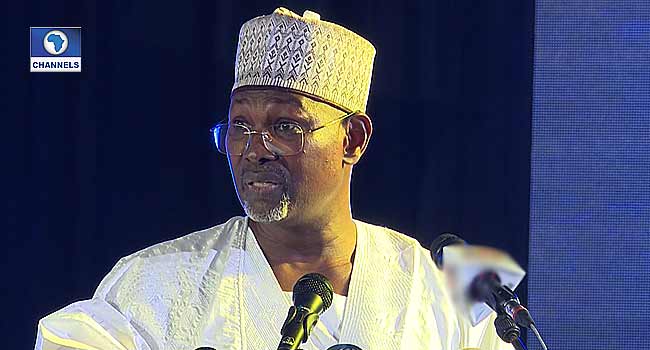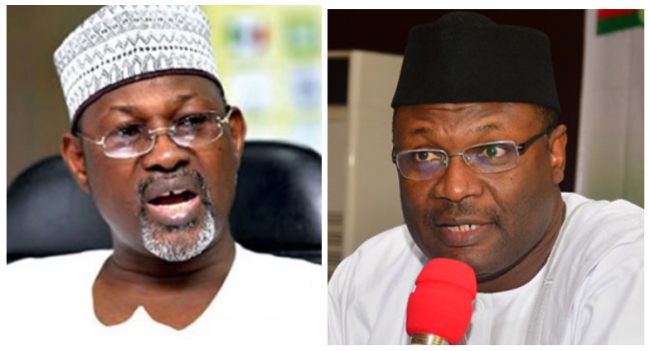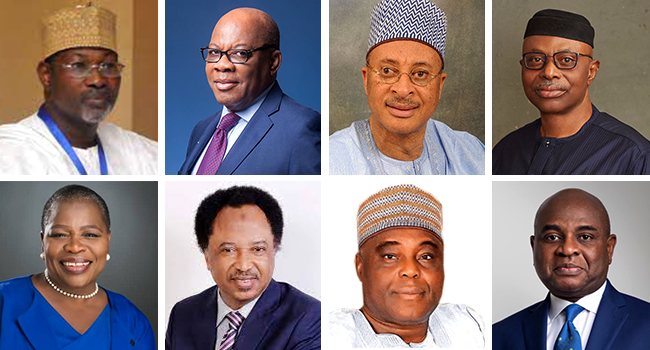
Former President Olusegun Obasanjo and some other former presidents in Africa have met to discuss how to ensure free and credible electoral process in the continent.
The ex-presidents include a former President of Ghana, Mr John Mahama; former President of Sierra Leone, Mr Ernest Koroma; and former Prime Minister of Kenya, Mr Raila Odinga.
Also present are the immediate past Chairman of the Independent National Electoral Commission (INEC), Professor Attahiru Jega, as well as Dr Muthoni Wanyaki and Amir Osman from the Open Society Foundations.
In his opening remarks, former President Obasanjo explained that the essence of the meeting was to review electoral systems in Africa, especially inputs, processes and output/outcomes.
The meeting, according to him, is also to examine the strengths and weaknesses in the use of ICT in electoral systems in the continent and elsewhere in the world.
“To illustrate how ICT can be used to ease the electoral process rather than inhibit it; to document good practices in e-voting across the world and extract lessons for Africa; and to propose models of successful deployment of ICT in electoral systems in Africa for the sustenance of democracy in the region,” the former president said.
He recalled the recent formal inauguration of the Africa Progress Group (APG) which he chairs.
Obasanjo was delighted that the Secretariat of APG was the venue of the two-day meeting which he said has to do with the progress of Africa.
“One of the pillars of Africa’s progress in my five “P”s as adopted by APG at its inaugural meeting of November 27, 2018, is Politics; the others are Prosperity, Population, Protection and Partnerships,” he said
“This meeting on the election process is within the framework of the pillar of politics. Deficit in the election process will translate to deficit in politics (and vice versa) which in turn will impede sound governance, a much sought-after element in the development of Africa.”
The former president added that the meeting would address one of the key issues at the heart of credible elections in Africa – ICT and the election process.
He believes the ICT is here to stay, pervading and increasingly impacting all aspects of the lives of Africans, including the conduct of elections.
“But it can be a good servant or a bad master. This is why, I believe, that the outcomes of our deliberations will have far-reaching implications for the quality and credibility of the election firmament in Africa now and in the future,” he said.
Obasanjo was also hopeful that the meeting would present new and refreshing insights into how ICT can be better used in delivering credible elections in the continent and for the rest of the world.
Professor Jega also delivered a paper titled: “Practical Experience in the use of ICT in the Election Process in Africa: The Nigerian Experience.”

He stressed that the two essential areas that technology has not yet been fully utilised were electronic collation and transmission of results, and electronic voting.
The former INEC boss said that the use of appropriate technology “goes a long way to improve the efficiency of the conduct of elections, as well the integrity of elections, worldwide and especially in Africa.”
“Opportunities need to be explored and adequately utilized, but we must constantly remember that use of ICT in elections is a means to an end, and not an end in itself.”
“That end perhaps is electoral integrity for deepening and consolidating democracy. We need to constantly deploy measures that can ensure secure and sustainable use of ICT in our electoral processes,” he said.
The two-day event which began on Monday is tagged, “High-Level Working Group Meeting on Mitigating Disruptive Applications of Information and Communication Technology (ICT) on the Electoral Process in Africa.
The event was organised by the Centre for Human Security and Dialogue of the Olusegun Obasanjo Presidential Library (OOPL) in conjunction with the Open Society Foundations.



